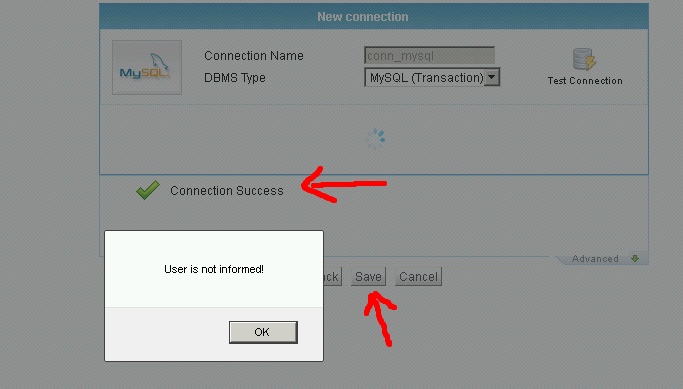

- #Scriptcase production environment password pdf
- #Scriptcase production environment password manual
- #Scriptcase production environment password code
But it also aims at the experienced developer, who can with Scriptcase put a lot more focus on business logic rather than editing forms, build database connections etc. It addresses Web Application Developers both for desktops and for mobiles in two ways: it enables starting developers with limited knowledge of programming PHP, Java and basic knowledge of databases SQL to build applications that read and updates data in Web Databases. Since then, it has been receiving regular updates. It is also possible to create infrastructure such as menus, login screen and security system with authentication, create tabs to group forms or queries to be executed on the same page. Scriptcase is Compatible with RTL Right to Left writing, support right to left writing prevalent on Arabic languages. Scriptcase allows users to write PHP to handle exceptions and create more complex validation). Complex SQL statements can be used sub-select, joins and even stored procedures.
#Scriptcase production environment password pdf
The generated reports can be exported to MS Word, MS Excel, PDF or printed.
#Scriptcase production environment password code
It permits development with JavaScript methods that can be used within the AJAX events and create applications with AJAX through a set of features and services with easy and fast hand coding, such as navigation between pages or sections, automatic validation of fields such as date, currency, zip code and social security number, among others. Scriptcase lets you create forms, queries in PHP, ranging from simple forms to forms having high level of complex elements to manipulate data from databases. It also enables to add custom code to manage business rules and validation. $number = “This variable stores a number” įor more information, visit the php variables.Scriptcase can be used to create CRUD applications. A valid variable name begins with a letter or underscore, followed by any number of letters, numbers, or underscores.īelow we can see some examples of local variables: Variable names follow the same rules as other labels in PHP. These variables will only work in events or methods, using a variable in an event it will make it only available in that event. These variables must be set using a $ dollar sign at the beginning and the variable names are case-sensitive. Local variables are basically PHP’s own variables. Reports where the variable was declared by the developer. Type: This option defines whether the variable will be input or output. In Value we can see some options and configurations of our variable. In Attributes we can see the variables in our application. In this configuration screen we have the following configuration options: Attribute: To change the variable type, go to the menu Application> Global Variables.Īfter clicking on this menu will show the variables in the application and its settings. To pass values between applications, it is necessary to define the same variable in the applications that will use them, however, in the source application the variable must be defined as Output and in the destination application must be defined as Input. = “This global has a number stored in it” Passing values between applications = “This global has a text stored in it” To define a global variable, you only have to enter it in between brackets, for example:
#Scriptcase production environment password manual
Unlike the local and field variables, Global variables can be used in the SQL of the applications that allows the manual to be changed, and in the WHERE Clause of the Form application, thus enabling a dynamic use of the applications. These variables can be used at any application event. These are variables that are stored in the application session, these variables can be used to pass parameters through the applications in the project.

= 100 Global Variables (Session Variables) To assign the field value to a local variable to be used within an event, we can perform the steps as below: In the examples below it’s possible to visualize the operation of the fields. These fields can be used at Scriptcase events, but will not work from the onScriptInit event because only the events after that will have values in the fields. In Scriptcase the fields are internally treated as local variables PHP, however, at Scriptcase interface it’s necessary to inform these, using keys, so it’s possible to retrieve or assign values to the application fields.


 0 kommentar(er)
0 kommentar(er)
